The One Big Beautiful Bill, Explained
We break down the House GOP’s One, Big, Beautiful Bill—a sweeping tax package designed to extend key parts of the 2017 Tax Cuts and Jobs Act before they expire in 2026.
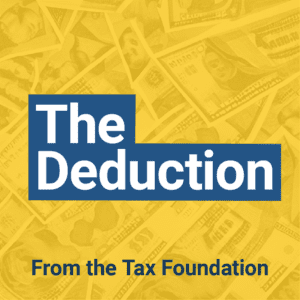
Welcome to The Deduction, a Tax Foundation podcast and your guide to the complicated world of tax and economics.
From the impacts of tariffs and trade wars to debates over who pays and how much, each episode, our experts untangle another aspect of the tax code.
Apple Podcasts Google Podcasts Spotify
Castbox Stitcher Amazon Music RSS Feed
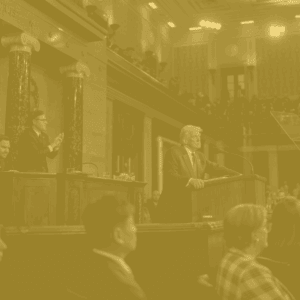
We break down the House GOP’s One, Big, Beautiful Bill—a sweeping tax package designed to extend key parts of the 2017 Tax Cuts and Jobs Act before they expire in 2026.

What happens when the country’s most important retirement program runs out of money? Social Security faces a funding crisis by 2035. We unpack how the system works, why it’s in trouble, and what fixes could keep it afloat.
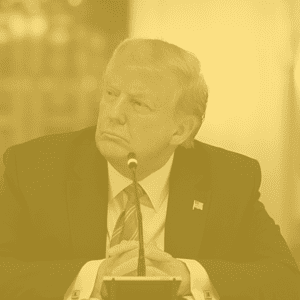
Do tariffs really level the playing field, or are they just bad economics? In this emergency episode, we fact-check the Trump administration’s claims that retaliatory tariffs make trade fairer.

With property tax bills on the rise, homeowners are searching for answers—and some even want to abolish the tax altogether. In this episode, we break down why property taxes are increasing, common but flawed solutions, and why the property tax remains an economically efficient revenue source.
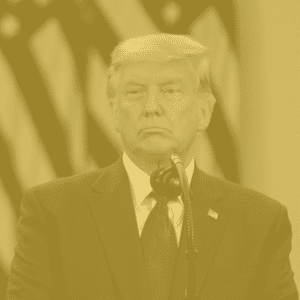
Can tariffs truly replace income taxes in today’s economy? In this episode, we examine the bold and controversial proposal from former President Trump to replace income taxes with tariffs. What would this dramatic shift mean for everyday Americans, particularly those with lower incomes? And would it actually work?

Financial literacy is a problem that educators around the country are trying to tackle. Today, we’re speaking with Jed Collins, a former NFL player, who is leading the charge in the financial education arena by guiding high school and college students, as well as professional athletes, through the world of finance.

As of 2020, there were 448 million active cell phone and wireless plans in the U.S. than there were Americans. The taxes on those plans brought in approximately $11.3 billion and constituted a record 24.96 percent of the cost of an average cell phone bill. Explore why cellphone taxes are climbing, the places they’re the highest, the consumers they impact the most, and how things can be improved.
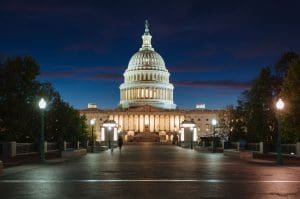
Federal policy is hard. Federal health care policy during reconciliation while governing with razor-thin margins is really, really hard. We break down the debate on Capitol Hill over drug pricing and what the tradeoffs would be of having the federal government set prescription drug prices.
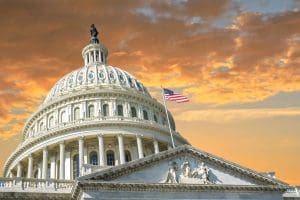
We discuss where the reconciliation package on Capitol Hill stands and talk through recent Tax Foundation modeling, which found that the plan may not have the economic boost its proponents have claimed.
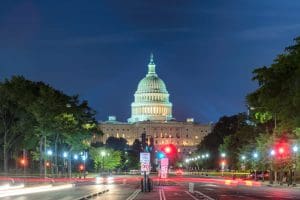
Reconciliation. One word that drives D.C. crazy, yet has been the way some of Congress’s most monumental bills have become law. We discuss why this complex budget process is back in the mix as Congress gears up to advance President Biden’s multi-trillion-dollar tax agenda.

How should policymakers view crypto? How big is the issue of tax evasion in the cryptocurrency market and what can realistically be done to curb it? Is it possible to design a rational tax system around what, at times, can appear to be a less-than-rational market and, if so, what should it look like?
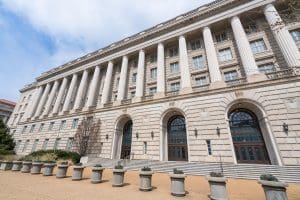
Learn about the tax gap, what it is, how the U.S. compares to other countries, and recent proposals aimed at closing it. We also explore how much revenue could actually be raised through increased tax enforcement, the current challenges the IRS faces, and how stronger enforcement could impact taxpayers at large.
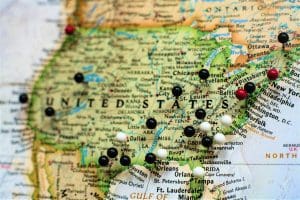
On this episode of The Deduction, host Jesse Solis and Senior Policy Analyst Katherine Loughead explore how stronger-than-expected revenues and increased workplace flexibility have led to a wave of reforms aimed at enhancing tax competitiveness in states around the country.

If you’ve read any headlines in the last few months, you’ve no doubt heard about the semiconductor shortage gripping global supply chain—and if you’ve tried to buy anything from a toaster to a car, you’ve witnessed it firsthand. But what’s really driving today’s crisis, can the U.S. manufacture its way out of it, and what role does tax and economic policy have to play in all this?

One of the hottest topics in the tax world today is the recent announcement by G7 finance ministers that they would support enacting a new, 15-percent global minimum tax. We dive into the economic and political implications and how such a tax would impact global economies, revenues, and real people.

Across the U.S., policymakers of both parties have developed a strong interest in taxing large technology companies through digital advertising taxes, social media taxes, and data taxes. Join Tax Foundation’s Daniel Bunn and Jared Walczak as they untangle the complex and sometimes contradictory world of state digital taxes.

On this episode of The Deduction, we speak with Pam Olson, Tax Foundation Board Member and Consultant on Tax Policy Services at PwC, about the tax on Global Intangible Low Tax Income, or “GILTI.” In 2017, GILTI was implemented as a minimum tax designed to disincentivize U.S. companies from shifting profits overseas, but it doesn’t work how drafters intended, and now President Biden has proposed doubling it.

The legalization and taxation of recreational marijuana remains one of the hottest trends in state taxation. New York recently became one of the latest states to legalize it. Join us as we dive into the complex world of marijuana taxation and explain how policymakers should approach designing such taxes.

Marijuana, betting, soda, ride-sharing—over the last decade, the excise tax family has grown significantly and it’s more crucial than ever that lawmakers, businesses, and consumers understand the possibilities and, more importantly, limitations of excise tax application.

R&D is more important than ever as pharmaceutical companies and governments around the world invest in coronavirus research and supply chains. But are the policies currently on the books—the R&D credit and immediate deduction for R&D expenses—the best way to encourage innovation?
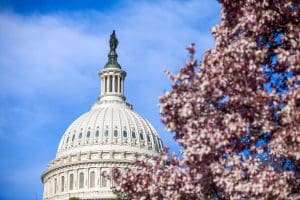
Tax Foundation President Scott Hodge interviews Ken Kies, former Chief of Staff for the Joint Committee on Taxation (JCT) from 1995 to 1998.

Depending on your perspective, tariffs are either a great way to tax countries like China for their protectionist trade policies or they are a big reason why all those imported toys, clothing and holiday gifts cost more than you expected. You’ll learn what tariffs are, how they function, and how they can impact the domestic U.S. economy.
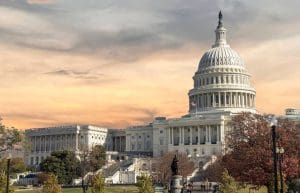
Rohit Kumar, principal and leader of PwC’s Washington National Tax Services Tax Policy Services group in Washington, D.C., joins Tax Foundation President Scott Hodge to discuss the congressional budget reconciliation process: what it is, how it works, and the role that politics will play in it for the 117th Congress as well as President Biden’s policy agenda.

Over the last several years, policymakers in countries around the world have groped for new ways to tax e-commerce, social media, cloud-based, and other online businesses, in some cases stoking major international trade disputes in the process. In this episode of The Deduction, we explore the “digital services tax” (DST), one new and increasingly popular policy designed to address the digital economy.
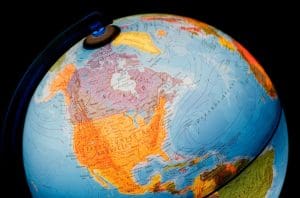
What is driving the downward trend in corporate tax rates and will it continue? Is it truly a race to the bottom? Why do corporate tax rates matter in the first place? How does the U.S. rate compare and could that change in the coming years?

We sat down with the owners of Black Narrows Brewing Company, a family-owned craft brewery situated in a small island-town on Virginia’s scenic Eastern Shore, to discuss the challenges they face as a small business during COVID-19 and what they would like to see legislators do to reduce short- and long-term barriers for entrepreneurs.